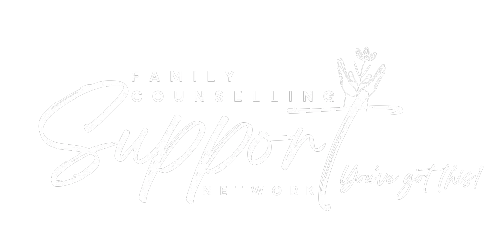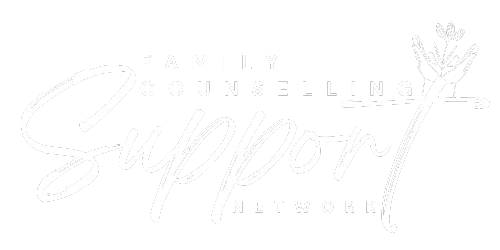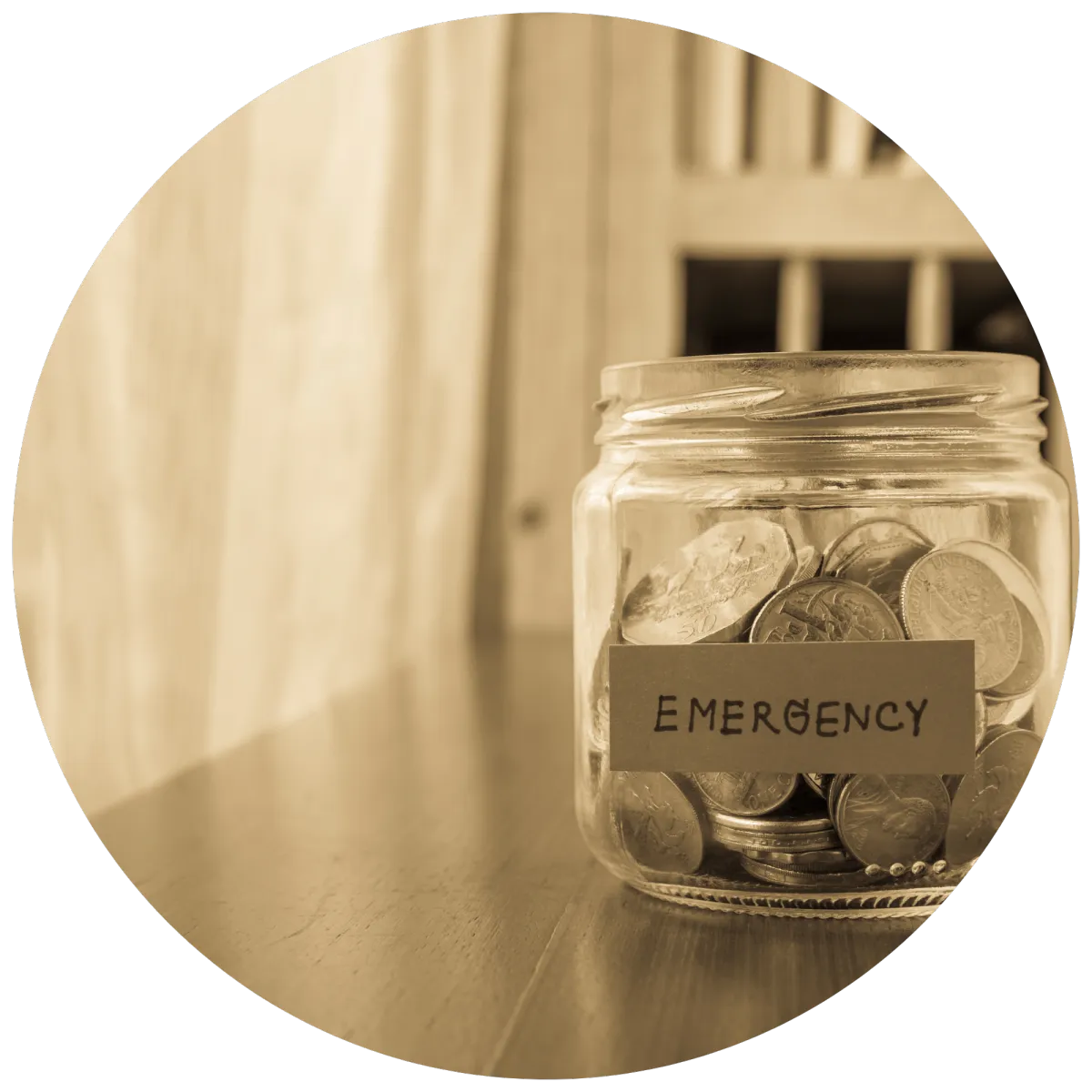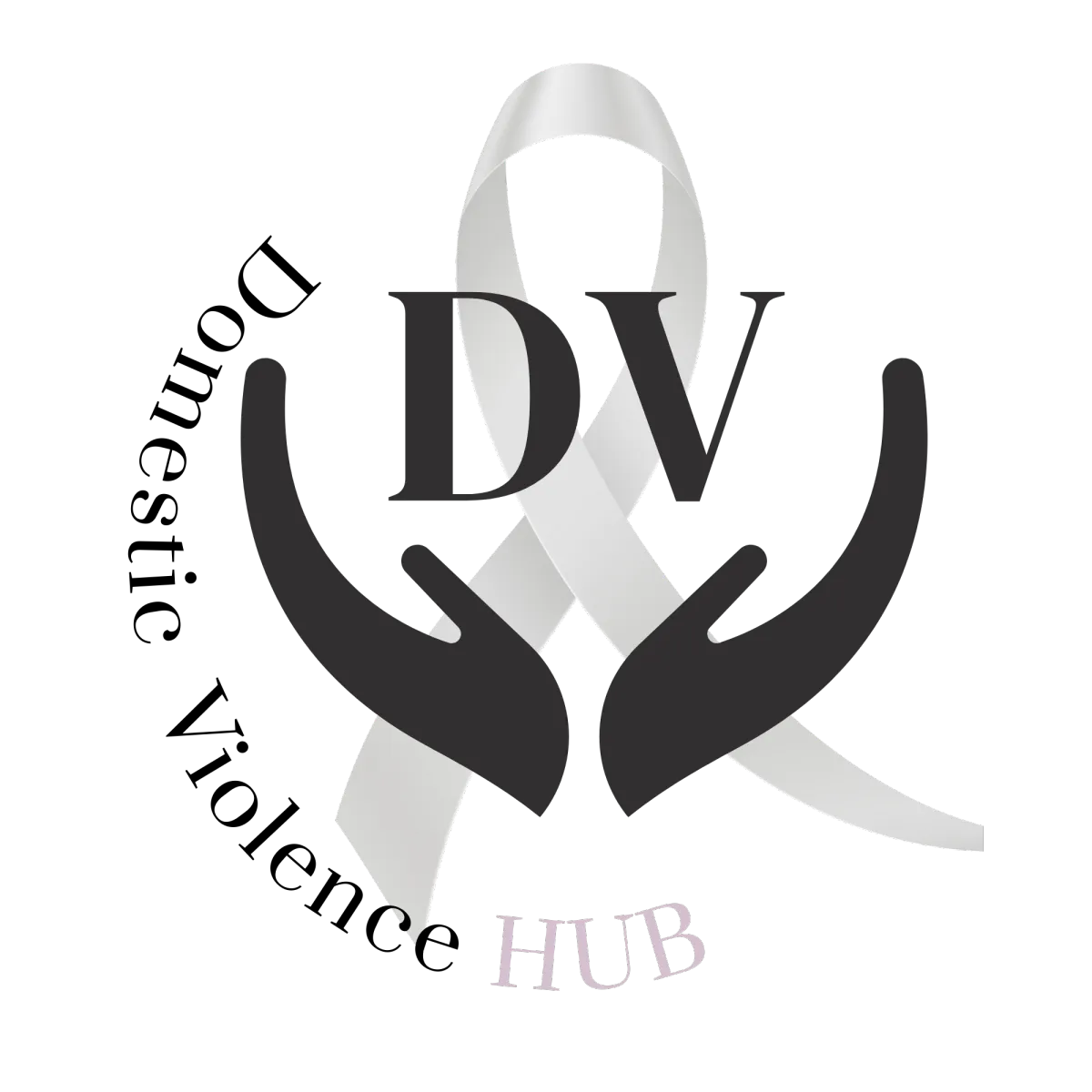DV - Longer term financial independence
The DV Support Hub, provides FREE consolidated information on Australian domestic and family violence matters.
It is just one of the many hubs provided for free through Family Counselling Support Network, to Australians. If you, or are family member, are facing family and domestic violence or supporting someone who is, this hub provides information, resources and a guide on how to find support, keep safe, access resources and move forward safely with independence and greater confidence.
We endeavour to keep this information as up to date as possible.
This site is dedicated to the memory of all those who have lost their lives and the resilience of survivors.
If you have arrived at this hub because you or your loved one or friend is in need of support, we are extremely proud of you.
If you have arrived at this hub because you are seeking support to help find solutions to deal with your emotions, great move, we are also here for you to get the support you need.
Please know there is love and support for you. You've Got This.
There is never an excuse for abuse.

Bills and Rent assistance
Applying for government assistance
Applying for child support/spousal maintenance
Getting and staying on top of debt
Budgeting
Saving
Loan options
Credit rating
Separation/Divorce Support and more affordable options
Financial property settlement as soon as you can
Career assistance
Financial courses and resources
Amending your will, insurance, life insurance after separation.
1.Getting help to pay your rent or bills
1.1 Rent Assistance
1.2 Bills assistance
2. Applying for government assistance
2.1 How to apply
2.2 Address safety concerns etc
3.Applying for child support and spousal maintenance
3.1 How to apply
3.2
4 Avoiding financial abuse post separation
5. Steps to get on top of your debt and avoid more debt
6. Getting a Pay Day loan? Any other alternatives?
7. Understanding credit ratings and your score
8. Budgeting
9. Getting financial assistance and financial counselling
10.Separation and divorce outcomes - getting financials settled ASAP
11. Accessing affordable legal and financial help
12. Career assistance
13. Amending key documents including - bank accounts, will, insurance, joint accounts/debt, life insurance, private medical insurance etc
14. Getting help with gambling addictions
1.1 Rent Assistance - what is it and are you eligible?
This is a regular extra payment if you pay rent and get certain payments from Centrelink (Services Australia) www.servicesaustralia.gov.au.
You don’t need to submit a claim for Rent Assistance specifically for Rent Assistance if you are already receiving Centrelink payments.
Centrelink check if you can get Rent Assistance when you make a new claim for certain payments (see below)
They may ask you to complete a Rent Certificate or provide a copy of your rent/lease agreement.
You can get Rent Assistance if you pay rent and you're already getting or eligible for:
➡️Age Pension
➡️Carer Payment or Disability Support Pension
➡️ABSTUDY Living Allowance
➡️Special Benefit Family Tax Benefit- Part A at more than the base rate
➡️Parenting Payment
➡️Austudy or Youth Allowance
➡️Farm Household Allowance
➡️Job Seeker payment
You must also pay 1 of the following:
➡️rent fees in a retirement village
➡️lodging board and lodging site or mooring fees if your main home is a caravan, relocatable home or a boat.
You must pay more than a certain amount of rent each fortnight.
How much Rent Assistance can I get?
This depends on how much rent you pay.
They may adjust your Rent Assistance if any of these things happen:
➡️the rent you pay increases or decreases
➡️you move house
➡️your income increases or decreases
➡️your family circumstances change, for example you separate from your partner, or the number of children in your care changes.
They may also adjust the amount of Rent Assistance you get when the payment rates change during the year.
If I live in community housing am I also be eligible for Rent Assistance?
If you have a lease agreement with a community housing organisation for a refuge or rehabilitation centre,
accommodation for Aboriginal and Torres Strait Islander peoples, disability accommodation, student accommodation and/or
some special needs housing - state and territory housing authorities assess these needs.
If you live in defence housing or in a retirement village - refer to specific rules at www.servicesaustralia.com.au
Payments for young people will depend on your payment type and if you live with a parent or guardian (ie you live in the same home with parent/guardian). For more information refer to www.
Who can’t get Rent Assistance?
You won’t get usually qualify for Rent Assistance if:
➡️you own or are buying the home you live in, except relocatable homes
➡️you’re travelling away from the home you own for less than 12 months
➡️the Australian Government pays a subsidy to the approved residential aged care facility where you live
➡️your partner gets Rent Assistance with Family Tax Benefit
➡️you get an allowance and your partner gets Rent Assistance with their pension
➡️you’re leasing from a state or territory housing authority.
1.2 Bill payment assistance
If money is very tight, you may be finding it hard to keep up with regular payments on important necessary services such as electricity and phone, gas, water bill. Here are a few simple steps you can take to sort things out.
If you can't pay your electricity, gas, phone or water bill, contact your service provider straight away.
They will explain your options, such as:
✅an extension to pay
✅paying in instalments
✅Centrelink deductions - you can arrange a Centrepay deduction, where Centrelink then pay the business for you, out of your Centrelink payment. They send you a letter confirming details of the deduction including the start date. You can also check your deduction summary online. www.servicesaustralia.gov.au
✅applying for a utility rebate or voucher (see details below).
PLEASE NOTE: If you don't contact your provider, they may suspend or disconnect your service. Not paying could also harm your credit rating score preventing your future chances of paying a loan or getting accommodation.
Steps to get your utility bills under control
Reference: National Debt Helpline (Australia)
Step 1: Work out what you can afford to pay
Work out what you can actually afford to pay by doing a simple budget (See details below...)
If you can afford to pay something, start paying the amount you can afford and get in touch with your
creditor (the person or company you owe money to straight away to put a repayment agreement in place.
If you can’t afford to pay anything call the National Debt Help line on 1800 007 007 straight away for advice.
Step 2: Contact your service provider
The sooner you contact your provider, the better. They may be able to offer you more affordable options such as:
✅Making sure you’re on the best plan for your usage
✅Averaging out your yearly usage into regular payments so seasonal bills don’t hit as hard
✅Offering an instalment payment plan for outstanding bills
✅Allowing you to delay a payment
✅Identifying power-hungry appliances at home so that you can moderate use – sometimes utility companies partner with community agencies that do house calls to help you assess usage
✅Checking your discounts, concessions and grants eligibility.
Step 3 - Are you entitled to a utility grant or concession?
All state and territory governments in Australia have a range of discounts and sometimes grants. These vary from state to state, but in general they comprise:
✅percentage discounts on usage costs
✅subsidized usage for people who use electricity for medical care
✅heating and cooling schemes
✅some payments towards part or whole amounts of bills
Ask your utility provider for information about concessions in your state, or refer to your state’s government website:
ACT – Australian Capital Territory – Assistance
NSW – Office of Energy and Climate Change
Northern Territory –NT Concessions Scheme
Queensland – The Department of Energy and Water Supply
South Australia – The Department of Human Services
Tasmania –Department of Health and Human Services
Victoria- The Department of Health and Human Services
Western Australia – Concessions WA
Step 4: Ask to speak with the ‘hardship department’ if not having luck negotiating
If you feel like you are not being supported, or you’re having long-term financial issues, ask to speak with the hardship department of their accounts section.
For people in severe hardship, some utilities have ‘incentive payments’ or ‘payment matching’. This means that for every regular instalment you make towards paying the bill, your provider will also contribute toward your bill.
In most cases, if, through no fault of your own, you can’t afford to pay for your usage, the hardship department can keep you connected.
Step 5: Be prepared before negotiating
Read about how to negotiate payment terms - LINK
.
Use this letter or email template to request a hardship variation - LINK
Step 6: If you still cannot agree, you can dispute it.
If you can’t come to an agreement that you think is fair, you have a right to seek ‘external dispute resolution’ if it’s available in your state or territory. This free and independent service gives you an opportunity to explain how you can work with your provider to get back on track with payments. Refer to website:
Problems paying insurance premiums
If you're struggling to pay your home, car, life or health insurance premiums, contact your insurer straight away. Explain your situation and tell them you would like to understand your payment options.
Your options may include setting up a payment plan or temporarily altering your premiums. Or, when making a claim, reducing or deferring the payment of the excess.
Problems paying council rates
If you can't pay your rates, contact your council as soon as possible. Ask about your payment options, such as:
paying in instalmentspaying part or all of your rates at a later timewriting off interest on overdue rateswaiving or reducing your rates if your land revaluation made your rates go up and caused you financial hardship
For a step-by-step guide on what to do, see the National Debt Helpline's council rates
Please note: If you don't pay your rates, the council could charge you a penalty — usually the interest on the amount you owe. Not paying could also harm your credit score.
Problems paying strata levies
If you're struggling to pay your strata levy, contact your strata or body corporate as soon as possible. While they may not offer financial hardship arrangements, they may vote on your request for a different payment option.
For a step-by-step guide on what to do, see the National Debt Helpline's strata levies
Problems paying fines
If you can't pay parking, speeding or littering fines, it's important to contact your state debt recovery agency straight away:
Australian Capital Territory:Traffic fines
New South Wales:Pay your fines
Northern Territory:Fines: how to pay
Queensland:Fines and enforcement
South Australia:Fines: ways to pay
Tasmania:Monetary Penalties Enforcement Service
Victoria:Fines VictoriaWestern Australia:Fines and infringements
Ask about your options, such as:
an extension to paypaying in instalments
Centrelink deductions (Centrepay)
doing community service to work off the debt
getting a caution (for example, if you have mental illness or intellectual disability or are homeless)
If you don't make contact with the state debt recovery agency, they may:
suspend or cancel your driver's licence or car registration
take you to court
publish your name on a fines recovery website
take and sell your possessions
take some of your wages
register a charge over your land
For a step-by-step guide on what to do, see the National Debt Helpline's paying fines.
Get free legal advice
Community legal centres and Legal Aid agencies in every state and territory offer free legal advice
7. Credit ratings and the affect on your scores
Lenders use your credit score (or credit rating) to decide whether to give you credit or lend you money. Knowing this can help you negotiate better deals, or understand why a lender rejected you.
Your credit score is based on personal and financial information about you that's kept in your credit report.
You can access your credit score and credit report for free.
If you want to fix something in your credit report, see credit repair (add information in here)
Get your credit score and report for free
If you've ever applied for credit or a loan, there will be a credit report about you.
You have a right to get a copy of your credit report for free every 3 months. It's worth getting a copy at least once a year.
Your credit report also includes a credit rating. This is the 'band' your credit score sits in (for example, low, fair, good, very good, excellent).
Credit report
Usually, you can access your report online within a day or two. Or you could have to wait up to 10 days to get your report by email or mail.
Contact these credit reporting agencies for your free credit report:
Experian1300 783
684illion132 333
Equifax138 332
Different agencies can hold different information. So you may have a credit report with more than one agency.
Get my credit score
Australia’s three main credit reporting bodies work with a number of individual online credit score providers. By going to each of the providers’ sites and filling in the required data, they’ll show you your credit score based on your credit report from the credit reporting body they’re affiliated with.
Visit the following websites for your credit score:\\\.....
Credit score explained
There is no ONE credit score that is used by lenders or available to consumers. The three main credit reporting bodies all create their own credit scores calculated from the data in your credit report. Australia’s three main credit reporting bodies are Equifax, Experian & Illion who are affiliated with individual online credit score businesses from whom you can request your free credit score.
Your credit score will change over time as your own credit behaviour changes e.g. if you apply for and / or take on more debt, or if your repayment behaviour changes (24-months of repayment history is kept on your credit report).
Lenders subscribe to one or more of the credit reporting bodies, sharing their customers’ comprehensive credit reporting information for inclusion in your credit report.
So, not all credit reporting bodies have the exact same information, it all depends on which credit reporting body your lender shares your credit reporting information with.
Your credit score gives an instant snapshot of your credit report. Some credit reports give scores out of 1,200 where 661 is good with anything above 853 being excellent. If your credit score is out of 1,000 then above 540 is good and above 690 is excellent.
Keeping an eye on your credit score is a simple way of checking how you are tracking – how well you have been managing your credit. If you find your credit score goes up, you know that your credit report is looking better to potential credit providers. If it goes down, it probably means that there is something on your credit report that is making you look less creditworthy.
Credit score
Some credit reporting agencies may provide your credit score for free. Check with them directly (see above).
Or you can get your credit score for free from an online credit score provider. This usually only takes a few minutes.
Credit score providers use data from one or more credit reporting agencies to work out your score. To find a provider, visit
Typically, you agree to their privacy policy when you sign up. That lets them use your personal information for marketing. But you can opt out of this after you sign up.
Avoid any provider that asks you to pay or give them your credit card details.
You can request a temporary ban on your credit report, to ensure no unauthorised loans or credit applications are made.
How your credit score is calculated
Your credit score is calculated based on what's in your credit report.
For example:
the amount of money you’ve borrowed
the number of credit applications you’ve made
whether you pay on time.
Depending on the credit reporting agency, your score will be between zero and either 1,000 or 1,200.
A higher score means the lender will consider you less risky. This could mean getting a better deal and saving money.
A lower score will affect your ability to get a loan or credit.
.
What's in a credit report
Your credit report is a record of your credit history. It includes things like your credit rating, the credit products you hold, and your repayment history.
Credit providers look at your credit history to decide whether to give you credit or lend you money.
Your credit report includes the following information.
⏹️Personal information
⏹️Credit rating
⏹️Credit products
⏹️Repayment history
⏹️Financial hardship information
⏹️Defaults on utility bills, credit cards and loans
⏹️Credit applications
⏹️Bankruptcy and debt agreements
Credit report requests
Fix mistakes in your credit report
When you get your credit report, check that:
-all the loans and debts listed are yours
-details such as your name and date of birth are correct
something is wrong or out of date, contact the credit reporting agency and ask them to fix it. This is a free service.
Some companies may try to charge you to get all negative information removed from your credit report. The only thing they can ask the credit reporting agency to remove is wrong information. And you can do that yourself for free.
If there are loans or debts in your report that you know nothing about, it could mean someone has stolen your identity.
Speak to one of our financial counsellors
If you’re feeling overwhelmed and need some help to deal with your financial hardship, you can speak with one of National Debt Helpline financial counsellors, who are not judgmental about your situation -they’re there to offer you free, confidential and independent advice and assistance.
To speak to a financial counsellor you can:
Call the National Debt Helpline on1800 007 007– open Weekdays from 9:30 am to 4:30 pm.
Use the live chat service9: 00 am to 8.00 pm weekdays. If you send a message outside these hours a financial counsellor will get back to you.
Make anappointment to see a financial counsellor in your local area –Find a local Financial Counsellor through the National Debt website: www.
Our tips
Don’t use your credit card to pay your bills – this will only add to your debt
Don’tbe tempted to go to a payday (fast loan) lender.
4. Getting on Top Of Debt - STEP 1 TO 8
Owing money or falling behind on repayments can be stressful. The good news is there are steps you can take to get out of debt — and stay out of debt.
If you're in crisis and struggling to make ends meet, there are services to help with food, bills, housing, and emotional support.
STEP 1: Know what you owe
The first step is to get a clear picture of what you owe.
Make a list of all your debts, showing:
✅ who the debt is owed to eg friend, buy now pay later, credit cards, pay day loan, loan repayments, lease/hire, unpaid bills, study fees, fines, child support, outstanding rent or other utility payments etc
✅how much each debt is
✅the minimum monthly repayment (if any)when the payment is due.
✅ add up all the debts to see how much you owe in total.
STEP 2. Get help if you need it - free financial counselling
If it feels like you owe a lot, you may be tempted by a quick-fix solution. Like taking out a payday loan or increasing your credit card limit.
Before you jump into anything, talk to a financial counsellor through the Australian based, National Debt Helpline. They can explain your options and help you make a plan to get your finances back on track. This is a free service.
To get free, confidential help, call the National Debt Helpline on 1800 007 007
The helpline is open Monday to Friday, 9:30am to 4:30pm. Or live chat
Monday to Friday, 9:00am to 8:00pm.
You can also call Way Forward on 1300 045 502
Monday to Friday, 9:00am to 7:00pm. If you need support to manage debts, they can arrange a debt repayment plan on your behalf. This is a free service.
STEP 3: Work out what you can afford to pay towards the debts
BUDGET -Compare money in and money out!
List all the money coming in from each place- for example salary/wage, overtime, bonus payments, dividends, pension, spousal maintenance, child support, benefits etc
List all the money going out - outgoing expenses and debts - like food, rent or mortgage, buy now pay later, credit card, electricity, gas, phone, transport
Add these up, then compare money in and money out.
STEP 4: Make savings or cuts
Do you have more money going out than coming in?
Or are your expenses higher than you'd like them to be? If so, it's time to make some choices.
You need to consider:
What are you actual needs— can't do without
What are you wants-could do without, at least for a while
What are luxuries- not likely to need
Find some expenses that you can cut - Be realistic — don't make it impossible to stick to.
STEP 5: Work out your 'debt money'
When you've made your spending cuts, subtract money going out from money coming in.
The amount left over is how much you can pay towards your debt each month. This is your 'debt money'.
STEP 6: Prioritise your debt and bills
Now that you've worked out your debt money, the next step is to prioritise your debt and bills.
Work out what to pay first - pay your higher priority payments first.
Higher priorities include rent or mortgage payments, council rates and body corporate fees
electricity, gas, water and phone, medication, food, car repayments and maintenance ( if you need your car for work or essential travel)
What if I am struggling to pay the highest priority bills?
If you're struggling to keep up with your bills and debts, talk to your provider about your options including whether you can get an extension or pay in installments. Taking action straight away can stop a small problem from becoming a big one. Ask for financial hardship assistance.
STEP 7: Start small and snowball your payments
Now you've got your bills prioritised and your debt money sorted, you're ready to get rolling on your repayments.
The quickest — and most motivating — way to get out of debt is the snowball method. You start small, and pay off your debts one by one. This is great for paying off credit card or personal loan debt.
✅ Pay the minimum— using your debt money, pay the minimum amount due on all debts each month.
✅Pay off the smallest debt first— use the rest of your debt money to pay off the smallest debt.
✅Pay as much as you can each month, until you clear it.
Celebrate and repeat— when you've paid off that debt, reward yourself by doing something you enjoy. This will inspire you to keep going. Then move onto paying off the next smallest debt, and so on!!!
STEP 8. Get a savings mindset
When you've got your debt under control, keep the momentum going. Saving regularly will help you avoid money problems in future.
✅Save for an emergency fund to build a safety net for unexpected expenses.
✅Open a savings account to start putting a little bit aside.
✅Then think about how to grow your money to achieve a goal such as buying a car, paying for education, or saving for a house deposit.
Reference:
https://moneysmart.gov.au/managing-debt/get-debt-under-control
5. What about a payday loan? Any other alternatives?
While there is no set definition of a payday loan, it is essentially a small amount loan, which lets you borrow up to $2,000. You have between 16 days and one year to pay it back.
While it might look like a quick fix, and licensed lenders are not allowed to charge interest for payday loans, a payday loan has a lot of fees. For example, to pay back a $2,000 payday loan over one year, your total repayments will be about $3,360. That's $1,360 more than you borrowed.
There are cheaper ways to borrow money when you need it. If you're getting a payday loan to pay off another loan, talk to a financial counsellor - it is free and confidential.
Most payday lenders charge an establishment fee of 20% of the amount borrowed and a monthly fee of 4% of the amount borrowed. For a $2,000 loan, that's a $400 establishment fee and $80 for the monthly fee.
Before you sign up for a payday loan, see how much it will really cost you.
Your repayment for a payday loan must be no more than 10% of your after tax income over the repayment period. That is, no more than a $10 repayment for every $100 you earn.
There will also be a default fee charged if you don't make a repayment by the contract due date — the maximum you can be charged if you default is double the amount you borrowed.
Paying back your payday loan
If you can't keep up with repayments, visit the National Debt Helpline website for help on how to pay back payday loans.
By law, licensed payday lenders must lend responsibly. This means they can't give you a loan if they think you won't be able to repay it or it could cause you substantial hardship.
If you think the lender didn't lend responsibly, get free legal advice
There are lots of alternative and cheaper options than a payday loan, including:
5.1 No interest loan
You can often borrow up to:
$2,000 to pay for essentials like appliances, furniture, education or car repairs, Or
$3,000 for a bond or rent in advance, council rates or natural disaster recovery.
To be eligible, you must:
➡️earn less than $70,000 (before tax) as a single person, or $100,000 (before tax) if you have a partner or children,or
➡️have experienced family or domestic violence in the last 10 years, or
➡️have a Health Care Card or a Pension Card, AND
➡️show that you can repay the loan.
You only repay what you borrow. There is no interest or fees.
5.2 Centrelink advance payment
You can get an advance payment of your Centrelink benefit. Most people who receive a Centrelink payment can apply.
There is no interest or fees. You can apply for an advance payment through the Service Australia website. www.servicesaustralia.gov.au
Help paying your bills and fines via your service provider
If you're struggling to pay your bills, talk to your service provider straight away. They can usually help you work out a payment plan to pay bills or fines.
The government and some community organisations offer rebates and vouchers that can help you pay utility or phone bills.
Getting a small cash loan
If you need a small cash loan, lenders will check your credit history which includes your credit report and sometimes your credit score.
They will usually look at your current income, assets, employment and bank balance. Approval may be instant nowadays, but a bad credit history will usually mean interest rates are very high.
100 points of ID????
Can I get a loan if I have a bad credit score?
The simple answer is yes, some providers do offer loans to people with a bad credit history. They do however come with very high interest rates and fees – sometimes as much as double or more of what you borrowed. This can make it even harder to get your finances back on track and under control.
What else can I do?
Instead of locking yourself into a loan with a high interest rate and lots of fees , it’s better to get your credit health back on track. It’s not so quick, but it’s worth it in the end. Not only could you get a better deal on your loan, but the steps you can take are great for establishing useful financial habits for life.
Over time, as your credit record improves, you’ll start enjoying greater access to loans at a much more reasonable rate.
Steps to improve your credit health
* Pay your bills on time - a really good starting point is to make sure you are really disciplined about paying all your bills on time. Late payments or defaults can negatively affect your credit health, which is viewable by lenders looking at your credit report.
Your credit report will have a 24-month record of how you pay your existing loans. So, keep your payments up-to-date.
*Consider financial counselling.
By getting advice from a professional financial counsellor, you can start building the foundations for smart debt management and improved credit health.
* Don’t open too many credit accounts at once. If you’ve only just started getting on top of your existing credit, opening too many accounts can have a negative effect on your report, where all your credit applications in the last five years are listed, and can also make providers cautious about your capacity to manage all that new credit
Financial counsellors are skilled professionals who provide advice and support to people struggling with bills and debt.
A financial counsellor can:
assess your financial situation
give advice about what to do if you're struggling to pay bills and fines
help you negotiate with government agencies, your landlord, utilities, telcos, and other creditors
assist you if you're being harassed by debt collectors
refer you to other services you might need, such as legal, accommodation, health and crisis services
Never pay for financial counselling. Businesses that charge fees for this are debt consolidation and refinancing
companies.
Small Business Debt Helpline - 1800 413 828
If your business is in financial difficulty, call the
Small Business Debt Helpline
The Helpline is open 9:00am to 5:30pm, Monday to Friday.
Farmers or rural and regional businesses
Farmers and other rural businesses who are experiencing, or at risk of financial hardship, can talk to a rural financial counsellor.
Find a financial counsellor near you - refer to www.nationaldebt....
Financial hardship
There are often two main reasons for financial hardship
: 1. You could afford the loan when it was obtained but a change of circumstances has meant you can no longer afford the repayments; or
2. You could not afford to repay the loan when it was obtained. If this is the case, get legal advice immediately.
If you are behind with your loan or lease repayments, it can be stressful.
For loans and leases for personal purposes (where the credit law applies), you have certain rights to ask for a
financial hardship repayment arrangement.
The creditor is required to respond to your request and be reasonable about making a repayment arrangement.
How to negotiate a repayment plan with your creditor
Work out what you can afford to pay
If you’re struggling to pay back money you owe, the first thing to do is to work out what you can actually afford to pay by doing a simple budget.
How to work out what you can afford to pay
.
If you can afford to pay something
Start paying the amount you can afford and get in touch with your
creditor
straight away to put a repayment agreement in place.
If you can’t afford to pay anything
Call us on 1800 007 007 straight away for advice.
02
Contact your creditor
You can call, write to or email the
creditor
letting it know you cannot afford your repayments and that you want to make a repayment arrangement. If possible, contact your
creditor
’s
hardship department
. This is called a hardship notice.
When you give a hardship notice (for the first time in any three-month period) the lender must stop further enforcement or legal action until it responds. This requirement does not apply if the
creditor
has a court
judgment
.
Your
creditor
can ask you for more information. The information must be relevant. Information that is relevant would include:
Details of your incomeDetails of your expensesThe cause of yourfinancial hardship(and evidence of the cause if available, for example, a medical certificate)
TIPS
Keep details of how and when you told thecreditoryou were infinancial hardshipYou must be having (or will have) trouble making your loan repayments because of reasonable cause (such as an illness or unemployment). There are many reasonable causes.You must be able to reasonably repay the loan if the variation is granted.You can ask for any type of repayment arrangement as long as it will reasonably repay the loan. For example, it could be a short-term reduction in repayments or a permanent change in repayments.You can requestfinancial hardshipeven if the co–borrower does not agree or cannot be contacted.
Sample letter/email to request a repayment arrangement under the credit law
03
The creditor must respond
The
creditor
must respond to your request for a repayment arrangement. The
creditor
has between 21 and 30 days to respond, depending on whether it asks you to provide further information.
You should continue to pay whatever you can afford during negotiations.
Possible responses
If the
creditor
agrees to the repayment arrangement you offer, then your contract has been varied.
If the
creditor
says no to a repayment arrangement you offer, then it must:
Tell you that it has not agreedGive you reasons for the refusalTell you about your right to have that decision reviewed in theAustralian Financial Complaints Authority.
04
If you make a repayment arrangement stick to it
If your
creditor
agrees to a repayment arrangement do your best to stick to the repayments.
Make the agreed repayments on the agreed dateIf you are struggling to make the repayments contact yourcreditoragain to talk about your optionsIf it is taking longer than you hoped to get back to making the scheduled repayments, talk to yourcreditorabout extending the arrangement
05
What to do if you can’t agree
If the
creditor
will not agree to a repayment arrangement you have the following options:
Keep negotiating with thecreditorLodge a dispute in theAustralian Financial Complaints Authority. It is a free service that can review the decision of thecreditorand make a decision. You do not have to accept the decision. If you do accept it, the decision is binding on thecreditor.Go to court. Get legal advice if you want to consider this option.
06
What happens to my credit report?
When you are behind in repayments, your
credit report
may be affected. There are two ways your
credit report
might be affected:
A default being recordedRepayment history information being recorded
A
default
can only be listed on your
credit report
if:
You are in default (have missed repayments)A default notice has been sent to you giving you at least 30 days to pay the defaultA notice of intention to list the default on your credit file has been sent to you.
The
creditor
cannot list a default when you have asked for a repayment arrangement. The
creditor
can only list a default 14 days after it has rejected your request for an arrangement.
You are not in default if you are in an agreed repayment arrangement. So, the quicker you make an agreed repayment arrangement (and stick to it), the less likely that a default will be listed on your
credit report
.
Repayment history information
(RHI) is information about whether you make your loan repayments each month.
If you are up to date the payment is listed as “0”. Once you miss a loan repayment you have 14 days to catch up. After 14 days your
credit report
will note that you have missed one repayment. If you keep missing repayments, your
credit report
keeps recording the number of monthly missed repayments.
There is no requirement to give you notice that repayment history information will be listed on your
credit report
.
If you make a repayment arrangement (and keep to it), the RHI should reset to 0. Unfortunately, there is a lot of argument between industry and consumer advocates as to how and when the RHI should reset to 0. Further clarification is expected soon.
If your
credit report
lists missing repayments on your RHI but you had made an agreed repayment arrangement, consider disputing the listing with
the
Australian Financial Complaints Authority.
07
What if I am not eligible for a hardship variation under the credit law?
You should still contact the
creditor
and explain your situation.
Ask for a reduction in (or postponement of) your repayments for period of time.If thecreditoragrees, confirm the agreement in writing. Keep a copy of the letter.If thecreditorwill not agree, you should keep making some of your repayments (if you can) and get advice from a financial counsellor.If thecreditorwill not agree you can also lodge a complaint with the external dispute resolution scheme yourcreditoris a member. See ourComplaints and Disputespage for more information about how to make a complaint with an external dispute resolution scheme.If court proceedings havecommenced, you must get legal advice immediately.
08
Speak to one of our financial counsellors
If you’re feeling overwhelmed and need some help to deal with your financial hardship, you can speak with one of our financial counsellors.
Financial counsellors aren’t judgmental about your circumstances – they’re here to offer you
free, confidential and independent
advice and assistance.
To speak to a financial counsellor you can:
Callthe National Debt Helpline on1800 007 007– open Weekdays from 9:30 am to 4:30 pm.Use ourlive chatservice by clicking the chat icon in the bottom right corner of your screen. Live chat is available 9:00 am to 8.00 pm weekdays. If you send a message outside these hours a financial counsellor will get back to you.Make anappointmentto see a financial counsellor in your local area –Find a local Financial Counsellor.
YOUR CREDITOR’S RIGHTS
While you have rights, it’s important to be aware that your creditors also have rights under the law. These rights allow your
creditor
to pursue you for money you owe them. Read more about creditors’ rights on the
Debt collection
page.
CAREER ASSISTANCE - employment program for women impacted by DFV (check on status)
- employment program for women impacted by family violence.
beginning careers (in areas such as real estate, accountancy, and small business ownership and enrolling to study at university and TAFE.
Standing Strong? - hpw get support- Sabeel
- seen women secure new and rewarding jobs, return to study, find accommodation and childcare, and make new friends.
-help with job applications, sourcing new clothes for interviews, even applying for a driving licence, and introductions to other support agencies and professionals
“
Often women leaving family violence situations were experiencing low self-esteem and some opted to do volunteer work before applying for paid work.
Standing Strong employment program participant – Sarah’s story
(This is based on a real story, but names and details have been changed to protect the participant’s identity.)
Sarah left all her family and friends behind and moved interstate to escape a violent ex-partner. She arrived on the Gold Coast with her two daughters a couple of years ago.
It was a very difficult time as she missed her friends and family terribly and had no support.
Sarah was referred to the Standing Strong program by a charity supporting Sarah and her girls.
Sarah explained that she wanted to help her get back into the workforce. She had very little money, two daughters to care for, and rent to pay.
Sarah was also doubting herself and her ability to succeed in a workplace.
But Sarah loved houses and meeting new people, and when her Standing Strong worker asked her what job she’d like to do, real estate was the first thing that came to mind.
Standing Strong helped her to qualify for a real estate license – Sarah’s worker assisted her to enrol in the training, and also covered the cost of getting her real estate agent’s license.
Now Sarah is going for job interviews with real estate agencies.
Her case worker helped her put together a great CV, and also linked her to a charity that gives new clothes (donated by fashion brands) to people in need.
Sarah’s self-esteem has been restored. She is positive she will soon land a job and have the money to care for her girls.
“Social Futures helped me by giving me the courage to move forward with confidence,” Sarah said.
“I knew they were there to support me to move forward. They gave great advice and encouraged me to put a plan in place for the future. And they assisted by paying for me to finish my real estate licence. I could never have done this on my own.”
“Now I can go out and get work in the real estate industry. I feel like they have ‘fast-forwarded my life’.
Without them, I’d be making slower progress.”
Sarah again believes in herself and the future.
Financial education and financial planning courses
Domestic & Family Violence Hub Directory
Blog Posts
No blogs found
This site is brought to you by Family Counselling Support Network
Book in with one of our professionals today



We are committed to protecting your personal information and respecting your privacy. This website uses cookies to analyze website traffic and optimise your website experience. By accepting our use of cookies, your data will be aggregated with all other user data.
DISCLAIMER: The material contained on this website is for general educational and information purposes only and is not a substitute for professional legal, financial, medical or psychological advice or care. While every care has been taken in the information provided, no legal responsibility or liability is accepted, warranted or implied by the authors or Family Counselling Support Network and any liability is hereby expressly disclaimed. For specific advice please contact us at [email protected]. All information contained on the website remains the intellectual property of Family Counselling Support Network and is for your personal educational use only. The information must not be reproduced or distributed without the express permission of Family Counselling Support Network.
Family Counselling Support Network acknowledges and respects the First Nations Custodians of the land where our offices stand, and where we work to help Australians. We pay respects to their Elders, past present and emerging, lore, customs and creation spirits. We recognise that these lands have always been places of ceremony, teaching, research and learning, and we acknowledge the important role Aboriginal and Torres Strait Islander peoples play in our community.
We are committed to providing an inclusive and accessible environment where people and communities of all identities and backgrounds are accepted, safe and celebrated.
Privacy Policy | Terms and Conditions























